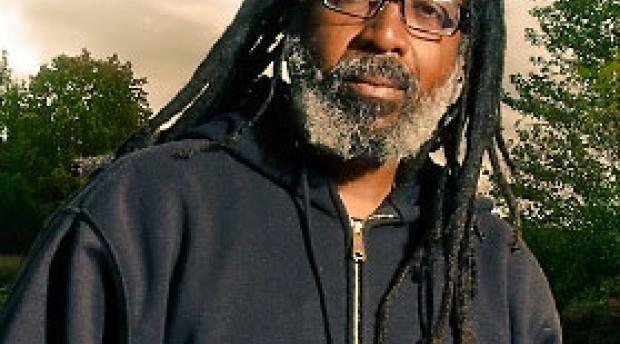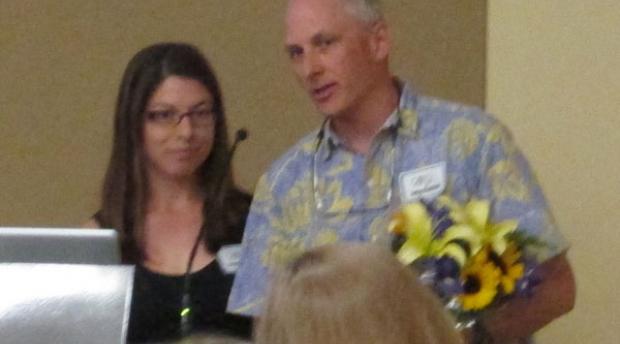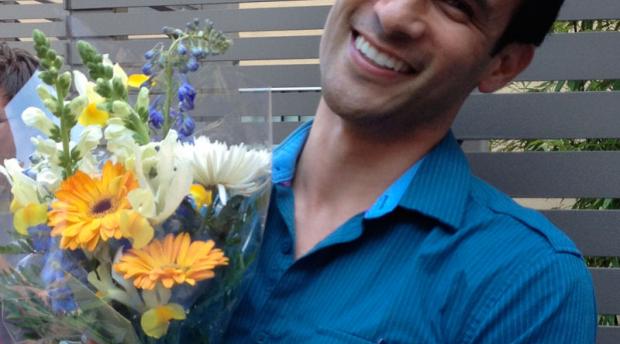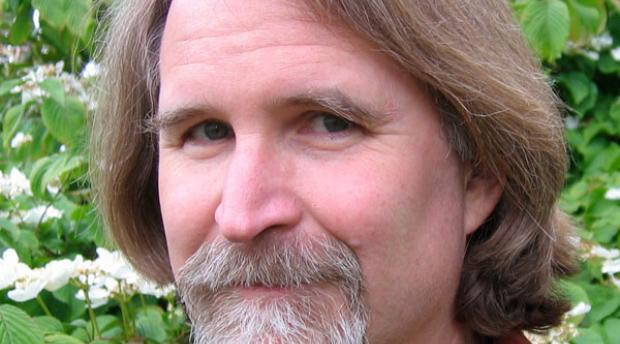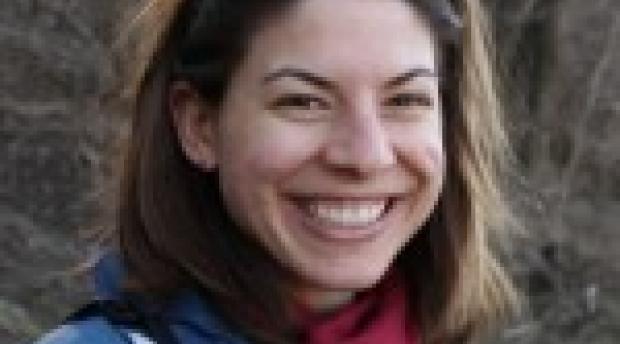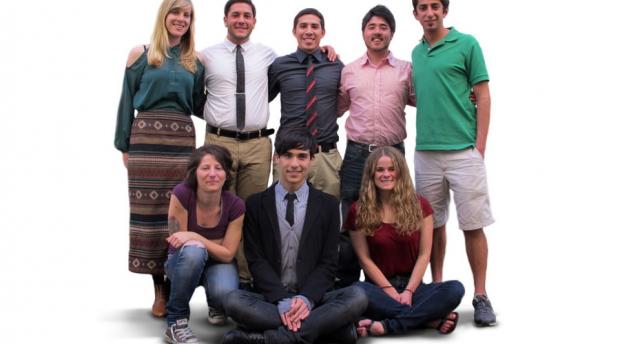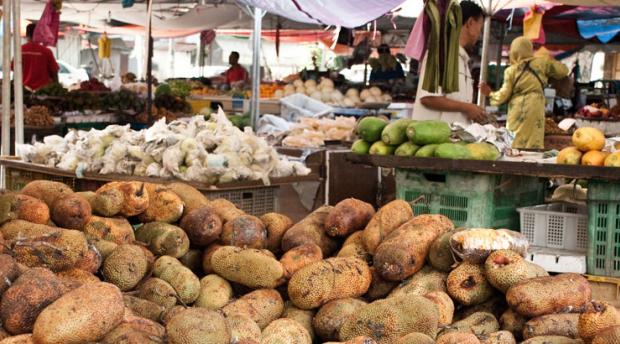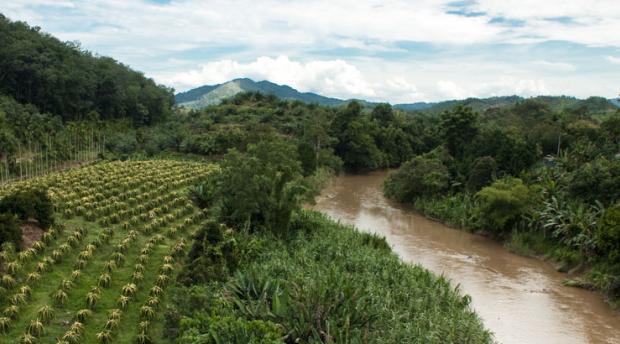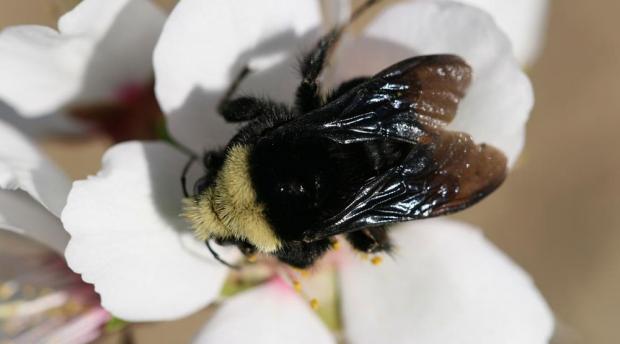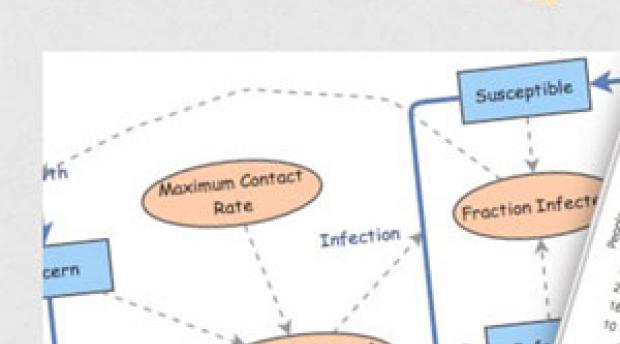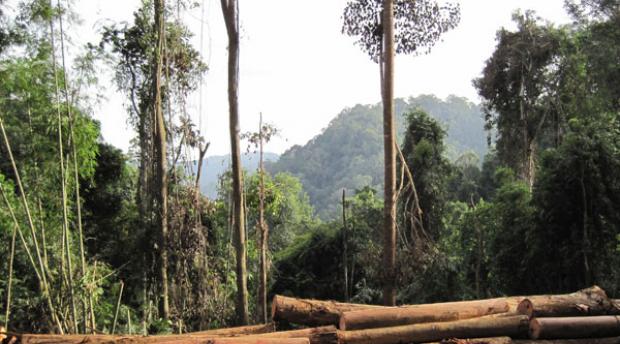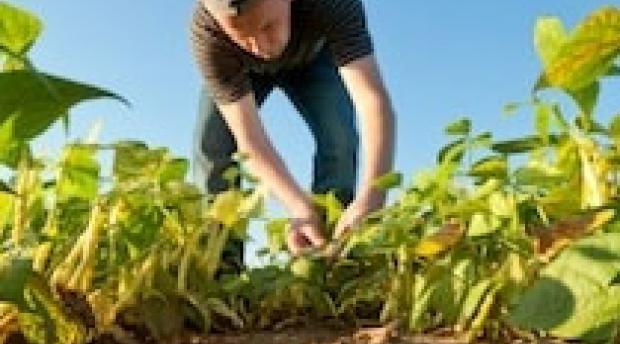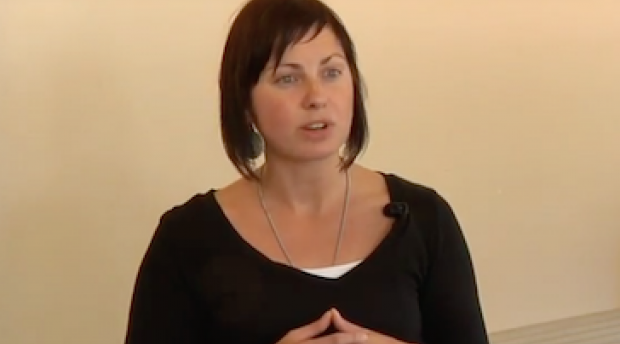The 2013 GradFest Symposium's Keynote Speaker Malik Yakini, May 3, 2013.
Professor John Battles receives the 2013 Graduate Student Association's Faculty Mentor Award
The 2013 ESPM Graduate Student Association's (GSA) Faculty Mentor Award was given to Professor John Battles for his commitment to mentoring and helping graduate and undergraduate students succeed.
First ESPM Distinguished Service Award given to PhD Candidate Brad Balukjian
The ESPM Graduate Student Association honored graduating PhD student Brad Balukjian with the newly created ESPM Distinguished Service Award, which recognizes his work to help improve the department.
GradFest: A Celebration of Graduate Student Research
This year's day-long GradFest included finishing talks from graduating PhD students-ranging in topics from social justice to floodplain restoration to urban forests, and keynote speaker Malik Yakini on food sovereignty and advocacy.
The Hans Jenny Memorial Lecture: Rocks Don't Lie: Noah's Flood and the History of the Earth
Dr. David Montgomery of the University of Washington will be delivering the annual Hans Jenny Memorial Lecture on Friday, May 10. His research addresses the evolution of topography and the influence of geomorphological processes on ecological systems and human societies.
Professor Gary Sposito on KGO: Texas blast is example of lax oversight
By Mark Matthews, ABC Local Station KGO
PhD Student Lauren Hallet wins 2013 Harris Research Instrumentation award
The Grant A. Harris Research Instruments Fellowship provides $5000 worth of Decagon research instruments to students studying any aspect of environmental or geotechnical science.
The Student Environmental Resource Center finds a new home in ESPM
The Student Environmental Resource Center (SERC) is now housed on the third floor of Mulford Hall. We asked founding members to share the story of how three friends brought a long overdue student presence to Our Environment.
The impacts of food production on biodiversity
Matthew Luskin and other Potts' lab students are working on quantifying the biodiversity impacts of producing that food through the Conservation of Biodiversity (CBioD) project.
A New Development? A symposium on the promise and politics of provincializing experts, models, and knowledge in the 21st century
ESPM invites scholars to reflect on the dynamics of science, technology and expertise in international development, domestic development practices, and how these two interact.
Palm plantations and tropical deforestation
ESPM graduate student Matthew Luskin studies wildlife conservation in the forests remaining within oil palm plantation landscapes.
Professor Claire Kremen featured in NPR and LA Times
A recent study in Science magazine co-authored by Claire Kremen, highlights the importance of wild insects and bees in pollination and agriculture.
Air pollution linked to low birth weight
Mothers who breathe the kind of pollution emitted by vehicles, coal power plants and factories are significantly likelier to give birth to underweight children than mothers living in less polluted areas, according to international findings published Wednesday.
New AIDS research uses models to see through lies about sex, inform HIV policy
The increasingly couples-focused public-health policy for AIDS prevention in sub-Saharan Africa underestimates the role that cheating spouses play in transmitting the virus, according to a new study from the University of California, Berkeley.
Graduate student Scott Fortmann-Roe creates interactive model-sharing site
By Pooja Mhatre, The Daily Californian Staff
Persistent methodological flaw undermines biodiversity conservation in tropical forests
A new paper, published in Conservation Biology, exposes a critical factor underlying disagreements, shedding light on past controversies and providing a path forward.
Beyond manifesto: How to change the food system
Mark Bittman, cookbook author and New York Times food writer, used the occasion of New Year’s Day to throw down the gauntlet for real and permanent change to the U.S. agricultural system. “We must figure out a way to un-invent this food system,” he says in a Times opinion column.
Professor Garrison Sposito gives the prestigious Langbein Lecture at the AGU Fall Meeting
The Walter B. Langbein Lecture is awarded and presented annually. Professor Sposito received the Lectureship for his lifetime contributions to the basic science of hydrology and unselfish service promoting cooperation in hydrologic research.
Alumnus David Warner on resilient building practices, the Human Needs Project, Metallica, and giving back to Cal
This month, we caught up with one of our distinguished alumni, David Warner (Conservation & Resource Studies, 1976), founder and owner of Redhorse Constructors.
PhD Student Kendra Klein talks about healthy food in health care
PhD student Kendra Klein sat down with the Switzer Network News to talk about her work in bringing healthy food and sustainable food production systems into hospitals.


